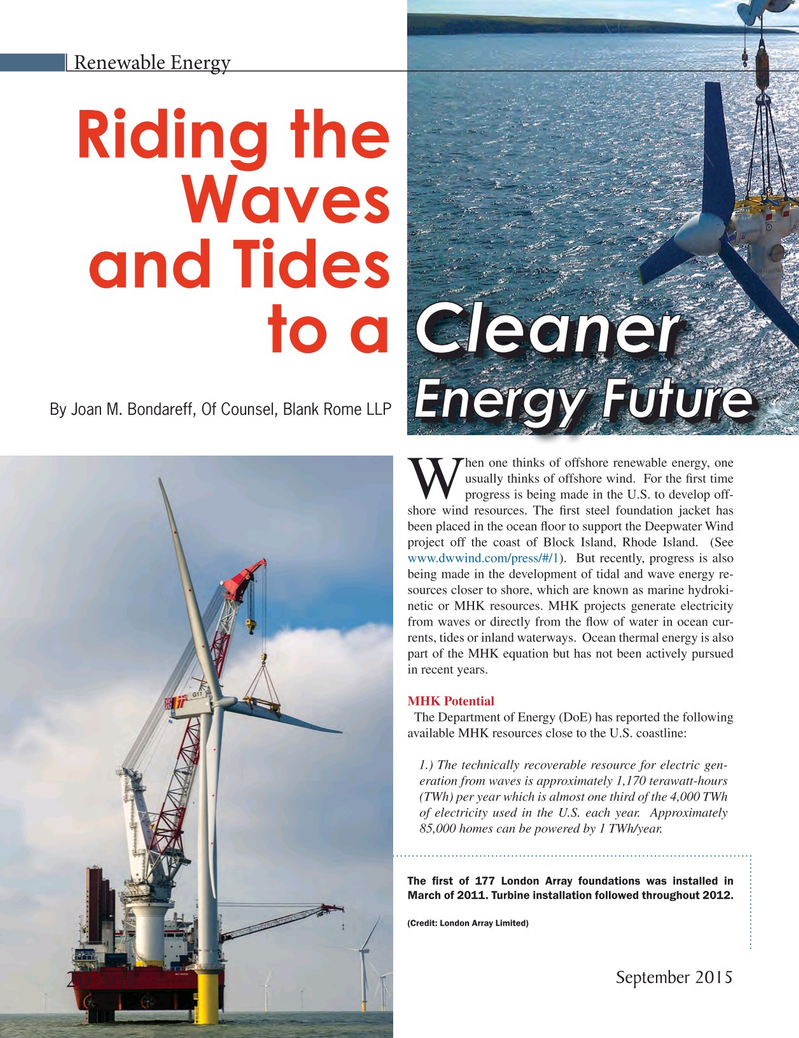
Page 20: of Marine Technology Magazine (September 2015)
Ocean Observation: Gliders, Buoys & Sub-Surface Networks
Read this page in Pdf, Flash or Html5 edition of September 2015 Marine Technology Magazine
Renewable Energy
Riding the
Waves and Tides to a
Cleaner Cleaner Cleaner
By Joan M. Bondareff, Of Counsel, Blank Rome LLP
Energy FutureEnergy Future
Energy Future hen one thinks of offshore renewable energy, one usually thinks of offshore wind. For the ? rst time
Wprogress is being made in the U.S. to develop off- shore wind resources. The ? rst steel foundation jacket has been placed in the ocean ? oor to support the Deepwater Wind project off the coast of Block Island, Rhode Island. (See www.dwwind.com/press/#/1). But recently, progress is also being made in the development of tidal and wave energy re- sources closer to shore, which are known as marine hydroki- netic or MHK resources. MHK projects generate electricity from waves or directly from the ? ow of water in ocean cur- rents, tides or inland waterways. Ocean thermal energy is also part of the MHK equation but has not been actively pursued in recent years.
MHK Potential
The Department of Energy (DoE) has reported the following available MHK resources close to the U.S. coastline: 1.) The technically recoverable resource for electric gen- eration from waves is approximately 1,170 terawatt-hours (TWh) per year which is almost one third of the 4,000 TWh of electricity used in the U.S. each year. Approximately 85,000 homes can be powered by 1 TWh/year.
The ? rst of 177 London Array foundations was installed in
March of 2011. Turbine installation followed throughout 2012. (Credit: London Array Limited)
September 2015 20
MTR
MTR #7 (18-33).indd 20 MTR #7 (18-33).indd 20 9/1/2015 3:29:02 PM9/1/2015 3:29:02 PM

 19
19

 21
21
